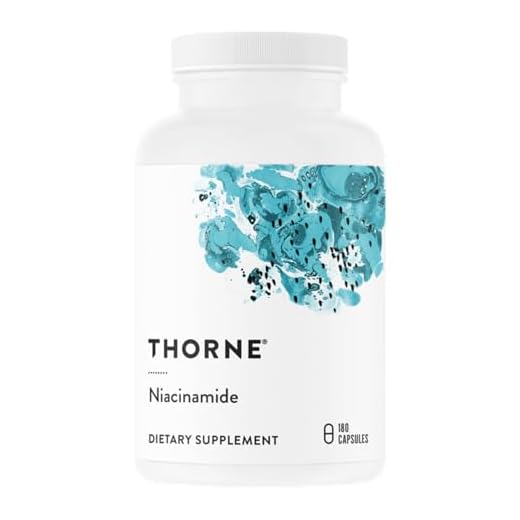



Vitamin B3, or niacin, can indeed help with sleep disorders. It plays a key role in enhancing sleep quality by increasing non-rapid-eye movement sleep (NREMS) and promoting relaxation. Studies show that adequate niacin levels can reduce anxiety and depression, both of which interfere with sleep. You can find niacin in foods like meat, nuts, and whole grains, which support overall sleep health. While it's beneficial, be cautious about potential side effects, especially with high doses. Understanding how niacin influences sleep may offer you further insights into improving your restfulness and overall well-being.
Key Takeaways
- Vitamin B3 (niacin) enhances non-rapid-eye movement sleep (NREMS), potentially improving overall sleep quality for individuals with sleep disorders.
- Adequate niacin intake can reduce fatigue and cognitive decline, positively impacting sleep health.
- Deficiencies in niacin are linked to disrupted sleep patterns and increased symptoms of anxiety and depression.
- Dietary sources of niacin include meat, nuts, legumes, and whole grains, which can support better sleep.
- Research suggests niacin may serve as a natural sleep aid, warranting further clinical studies for validation.
Understanding Sleep Disorders
Sleep disorders are a widespread issue that affects around 30% of adults globally, leading to significant daytime fatigue and impairing mood and cognitive function. One common sleep disorder is insomnia, which can severely impact your sleep quality and overall health. Chronic insomnia often ties to various health issues, such as anxiety and depression, making it essential to address these conditions effectively. Nutritional deficiencies, such as a lack of niacin's benefits, can play a significant role in your sleep health. Several factors contribute to sleep disorders, including stress, poor sleep hygiene, and lifestyle choices like excessive caffeine and alcohol consumption. Additionally, a lack of essential vitamins, such as vitamin B3, may disrupt your sleep-wake cycles and exacerbate insomnia.
Role of Vitamin B3
Vitamin B3, or niacin, is essential for maintaining healthy sleep patterns and overall well-being. It plays a vital role in synthesizing coenzymes NAD and NADP, involved in over 400 biochemical reactions related to sleep regulation. Research shows that higher doses of niacin can greatly increase non-rapid-eye movement sleep (NREMS) by up to 120%, highlighting its potential as a sleep aid. Additionally, its benefits extend to skin health, which can indirectly improve sleep by enhancing overall comfort and reducing irritations that may disrupt rest.
Niacin also influences the production of prostaglandins, specifically Prostaglandin D (PGD), which acts as an endogenous sleep promoter. This can enhance your sleep quality greatly. On the flip side, deficiencies in niacin can lead to fatigue and sleep disturbances, underscoring the importance of maintaining adequate vitamin B3 levels to support healthy sleep patterns.
Moreover, niacin's effects extend to metabolic suppression and body temperature regulation, both of which are linked to your sleep quality. By ensuring you have enough vitamin B3 in your diet, you can help promote better sleep and combat issues related to sleep disorders. Incorporating foods rich in niacin or considering supplements may be beneficial for enhancing your overall sleep experience and well-being.
How Niacin Affects Sleep
Research indicates that niacin can greatly enhance your sleep quality by promoting non-rapid-eye movement sleep (NREMS). Experimental studies have shown that nicotinic acid, a form of vitamin B3, can increase NREMS by up to 120% through systemic injections. This sleep-promoting effect is largely due to the synthesis of prostaglandins, particularly Prostaglandin D (PGD), which acts as an endogenous sleep promoter in your body. Additionally, Micro Ingredients Vitamin B3 Nicotinamide is a supplement that offers benefits such as skin care support and energy boosts, further enhancing overall well-being, which may indirectly benefit sleep patterns.
Oral administration of high doses of nicotinic acid, around 1 g/kg, produces similar increases in NREMS duration, offering a promising alternative for sleep aid. Notably, niacin also contributes to a decrease in body temperature, which correlates with longer NREMS periods. This temperature reduction may play an essential role in enhancing your sleep quality.
The treatment of sleep disorders with nicotinic acid has shown stable recovery without rebound effects, indicating its potential utility in managing various sleep disturbances. By considering niacin as a sleep aid, you may find a natural approach to improving your overall restfulness and recovery.
Benefits of Adequate Niacin
Maintaining adequate niacin levels is essential for overall health and well-being, as it plays an important role in converting carbohydrates into glucose for energy. This energy supports your daily activities and can indirectly improve your sleep quality. Niacin, or vitamin B3, is critical for synthesizing coenzymes NAD and NADP, which are involved in over 400 biochemical reactions, including those that regulate sleep-wake cycles.
Research shows that sufficient niacin intake can promote sleep by considerably increasing non-rapid-eye movement sleep (NREMS), making it particularly beneficial for individuals struggling with sleep disorders. Additionally, niacin's ability to reduce symptoms of anxiety and depression can further enhance sleep quality, since mental health issues often contribute to insomnia.
On the flip side, deficiencies in niacin can lead to fatigue and cognitive decline, both of which can adversely affect your sleep patterns. Therefore, ensuring you maintain adequate niacin intake is essential for healthy sleep and overall well-being. By prioritizing your niacin levels, you can better support your sleep quality, alleviate anxiety, and enhance your cognitive function, ultimately leading to a healthier, more restful life.
Dietary Sources of Vitamin B3
To support healthy sleep and overall well-being, it's important to incorporate dietary sources of niacin into your meals. Vitamin B3, or niacin, plays a crucial role in your body and can greatly impact your sleep quality. You can find niacin in various foods, particularly meat, nuts, legumes, and whole grains. A grilled chicken breast, for example, provides about 64% of the Daily Value (DV) for niacin, while a single serving of beef liver exceeds 100% of the DV.
Fortified cereals are another excellent source, as they often have added niacin to boost nutritional value. Plant-based sources like sunflower seeds, lentils, and peanuts also contribute to your daily intake of niacin. Other foods that contain this important vitamin include avocados and mushrooms, allowing you to enjoy variety in your diet while meeting your nutritional needs.
For adults, the Recommended Dietary Allowance for niacin ranges from 14 to 16 mg per day. By including these dietary sources in your meals, you can help address potential sleep disorders and support overall health.
Potential Side Effects
While incorporating niacin into your diet can offer various health benefits, it's important to be aware of the potential side effects associated with high doses. One common side effect is flushing, where you may experience red, itchy skin due to the release of prostaglandins that dilate blood vessels. Gastrointestinal issues, such as nausea and stomach upset, can also occur, especially with increased niacin supplementation.
Moreover, long-term use of niacin raises concerns about liver damage. Sustained high doses can lead to liver toxicity, so regular liver function monitoring is significant if you're taking niacin for an extended period. If you have diabetes, you'll want to exercise caution, as niacin can elevate blood sugar levels, complicating your diabetes management.
Additionally, niacin may interact with certain medications, including statins and anticoagulants. This interaction can either increase side effects or reduce the effectiveness of those drugs, making it important to discuss your niacin intake with your healthcare provider. Overall, while vitamin B3 can support sleep disorders, understanding these potential side effects is key to ensuring safe and effective use.
Research on Niacin and Sleep
Emerging research has highlighted the intriguing role of niacin, or vitamin B3, in enhancing sleep quality. Studies show that nicotinic acid markedly increases non-rapid-eye movement sleep (NREMS) in mice, with increases of 41% at a 100 mg/kg dose and 120% at 250 mg/kg. These findings suggest that niacin may have valuable sleep-promoting effects.
The sleep-inducing effects of nicotinic acid are linked to the synthesis of prostaglandins, particularly Prostaglandin D (PGD), an endogenous sleep promoter. When administered orally at 1 g/kg, nicotinic acid produces sleep-enhancing effects comparable to high-dose injections, indicating its potential as an effective sleep aid.
Importantly, research indicates that the administration of indomethacin, a prostaglandin synthesis inhibitor, blocks the sleep-promoting effects of nicotinic acid. This underscores the critical role of prostaglandins in regulating sleep.
The findings related to niacin's effects on sleep parameters point to promising therapeutic implications for sleep disorders. However, further clinical research in humans is necessary to fully understand these potential benefits and how they can be effectively harnessed for improved sleep quality.
Tips for Improving Sleep Quality
Improving sleep quality is essential for overall well-being, and there are several practical strategies you can implement to help achieve better rest. First, establish a consistent sleep schedule by going to bed and waking up at the same time every day. This can regulate your body's internal clock and enhance sleep quality over time.
Next, create a calming bedtime routine that incorporates relaxation techniques such as deep breathing or meditation. These practices signal to your body that it's time to wind down. Limiting screen time and exposure to blue light at least an hour before bed can boost melatonin production, helping to improve your sleep patterns.
Additionally, maintain a comfortable sleep environment—keep your room cool, dark, and quiet to promote restful sleep. Finally, consider your diet; incorporating dietary sources of sleep-promoting nutrients like vitamin B3 (niacin) can support sleep health. Niacin is vital for synthesizing sleep-regulating hormones, making it a valuable addition to your evening routine. By adopting these strategies, you can greatly enhance your sleep quality and overall health.
Conclusion
Incorporating vitamin B3 into your diet might just be the key to improving your sleep quality. Imagine waking up refreshed after a night of restful slumber, feeling more energized and focused throughout your day. While niacin can support better sleep, it's crucial to balance it with other healthy habits. So, as you explore dietary sources of this important nutrient, you could be taking a significant step toward not only better sleep but a more vibrant life overall.





